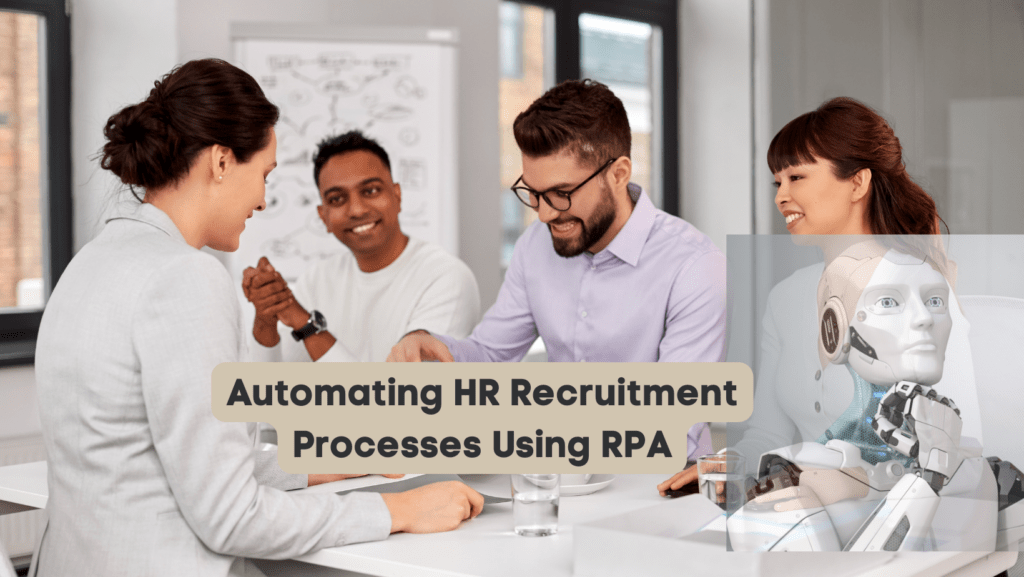
The HR process has always been known for its time-consuming nature and resource-intensive demands within organizations. As businesses grow exponentially, keeping up with this development becomes a daunting challenge, especially for HR teams.
However, a new era of engaging work has emerged with the introduction of RPA in HR. Robotic Process Automation (RPA) has taken over manual tasks, freeing up HR teams to focus on high-value work that can propel the business to new heights.
Yet, the implementation of RPA comes with its challenges, particularly the lack of clarity in mainstream business processes not designed for RPA integration. This hurdle has deterred some, with “41% of companies not switching to RPA due to a lack of clarity in the business process.”
Nevertheless, those who embrace RPA witness its transformative impact. According to the Deloitte Global RPA Survey, “78% of companies that have already implemented RPA plan to significantly increase their investment in RPA over the next three years.”
With RPA leading the way, HR teams are poised to unlock their full potential and drive innovation across the organization.
RPA in HR
The RPA industry has been experiencing remarkable growth, with each passing year witnessing significant advancements. In 2021 alone, numerous industries embraced RPA to harness its transformative potential. Leading the way was the manufacturing industry, with an impressive adoption rate of 35%. It was closely followed by the tech industry (31%), healthcare industry (10%), retail industry (8%), finance industry (8%), public sector (5%), and education industry (3%).
However, the landscape has evolved further with the introduction of RPA for human resources, driving even more industries to incorporate RPA into their business strategies.
The HR team faces an array of day-to-day administrative and operational tasks that lend themselves well to automation. By delegating non-decision-based work to bots, the human resources department gains valuable time and resources to address other vital aspects of the company. This newfound efficiency enables HR professionals to enhance productivity by dedicating office hours to engage in face-to-face interactions with employees, effectively resolving various issues. RPA in HR is unlocking new possibilities for businesses across diverse industries, empowering them to achieve higher levels of productivity and employee satisfaction.
Benefits of RPA in HR and Payroll
The HR department is the backbone of any organization, providing crucial support and shaping the workplace environment for employees. However, as businesses undergo digital transformation, the volume of digital records managed by HR is surging exponentially.
Amidst processing such vast records, HR professionals may face slowdowns or human errors, inevitable given the scale of their responsibilities. The integration of RPA in HR presents a powerful solution to counter human error and automate manual processes.
RPA in HR involves the use of software bots to handle recurring instruction-based tasks at a high volume with utmost precision. As long as error-free data is provided, RPA bots execute these tasks according to predefined instructions in a matter of seconds.
The potential of RPA in HR to revolutionize the industry is immense, offering enhanced efficiency and a significant return on investment for both small-scale and large companies. What’s more, RPA operates in the background, requiring no attention from employees.
Key Benefits of RPA in HR and Payroll:
Productivity Increase
By automating repetitive tasks that previously consumed hours of HR experts’ time, RPA dramatically improves productivity. Research by EY reveals that HR employees spend 93% of their office time on mundane tasks, with over 60% of these tasks being ideal candidates for robotic process automation. RPA liberates employees to focus on higher-value decision-based tasks, contributing to overall company growth and productivity.
Consistency
Maintaining consistent work quality is a major challenge in modern companies. The monotony of repetitive tasks can lead HR professionals to lose interest, resulting in inconsistent outcomes over time. RPA streamlines these tasks, ensuring consistent results by eliminating variations in output through automated precision.
Scalability
RPA operates on preprogrammed procedures that can be reprogrammed according to changing organizational needs. This exceptional flexibility allows seamless scaling up or down as per demand, without any downtime. RPA’s scalability empowers organizations to adapt swiftly to evolving requirements.
Accuracy
RPA in HR and Payroll guarantees unparalleled work accuracy due to its pre-coded technology. Any inconsistency in output is attributable to input data, not the RPA process itself. Automation bots can even be programmed to reject inconsistent input data, further enhancing overall accuracy and freeing employees from the need for constant double-checking.
Reliability
RPA offers unwavering reliability, operating continuously without the need for breaks, rest, or downtime. Automation bots consistently deliver highly accurate results every time they process new data. This reliability ensures a worry-free work experience for HR and Payroll professionals.
Incorporating RPA in HR streamlines processes, elevates efficiency, and empowers HR professionals to focus on value-added tasks, driving organizational growth and success. As businesses embrace the transformative potential of RPA, the future of HR and Payroll is set to achieve new heights of productivity and precision.
Use Cases of RPA in Human Resources
The advent of RPA in human resources has unlocked numerous use cases that streamline and automate work processes, empowering HR teams to manage a vast array of administrative tasks without the need for additional hires. Below are some of the most practical and common use cases of RPA in human resources:
1. CV Screening & Shortlisting Candidates
RPA technology facilitates quick and efficient CV screening, data verification, and candidate shortlisting. Automation bots swiftly process the overwhelming influx of job applications, allowing recruiters to identify the best talents with ease and in minimal time.
2. Simplifying Onboarding
RPA bots can be programmed to automate the entire onboarding process, including delivering digital offer letters, orientation guidelines, and other necessary documents. This smooth onboarding experience enhances the candidate’s journey and accelerates their integration into the company.
3. Employee Data Management
RPA streamlines employee data management by automating data entry, synchronization, and copying tasks. This reduces errors and frees up HR professionals to focus on high-value responsibilities, contributing to increased efficiency and reduced troubleshooting time.
4. Payroll Processing
RPA simplifies payroll processing by automating data entry and calculations, eliminating the risk of human errors. The quick and accurate payroll calculation ensures employees are paid on time, leading to higher job satisfaction and loyalty.
5. Expense Management
RPA eases the complexities of expense management by automating the claim process and approval, ensuring transparent and efficient expense handling.
6. Maintaining Compliance
RPA enables HR teams to swiftly adapt and comply with ever-changing labor laws and regulations, facilitating easy creation of compliance reports for the organization.
Embracing RPA in human resources offers a multitude of benefits, including increased efficiency, reduced manual efforts, enhanced accuracy, and improved employee experiences. As organizations integrate RPA into their HR processes, they unlock the potential for a more streamlined and effective workforce management, leading to significant business growth and success.
Final Words
The RPA industry continues to progress, now incorporating AI to handle even more decision-based tasks. However, rather than being a cause for concern, HR automation is a valuable tool to save time and enhance HR tasks significantly.
The talent shortage is a challenge faced by 45% of organizations, particularly pronounced among large-scale companies, where over 67% grapple with this issue, with HR departments being significantly affected.
HR automation can bridge the gap between the current state of organizations and a future where talent needs are met efficiently. By automating mundane tasks, HR automation grants employees more time to focus on critical assignments that require their expertise and creativity.
This time-saving aspect also enables employees to refine their work structures and acquire the necessary skills to meet organizational demands.
As mundane, high-volume tasks are delegated to RPA, the future of HR appears promising. Organizations can optimize their resources, resulting in a more productive workforce and propelling the business to new heights. With RPA and AI in the HR landscape, the future shines bright, offering greater opportunities for growth and success. Organizations must embrace RPA upgrades to stay competitive and capitalize on the latest advancements.
Moreover, RPA has been making waves not only in HR but also in various other industries, including the BPO industry. The RPA in BPO industry blog explores how this transformative technology is revolutionizing the outsourcing sector, streamlining processes, and unlocking new levels of efficiency and productivity. As RPA continues to redefine business processes across industries, its potential impact on the BPO industry is particularly noteworthy, opening doors to unparalleled growth and optimization.

